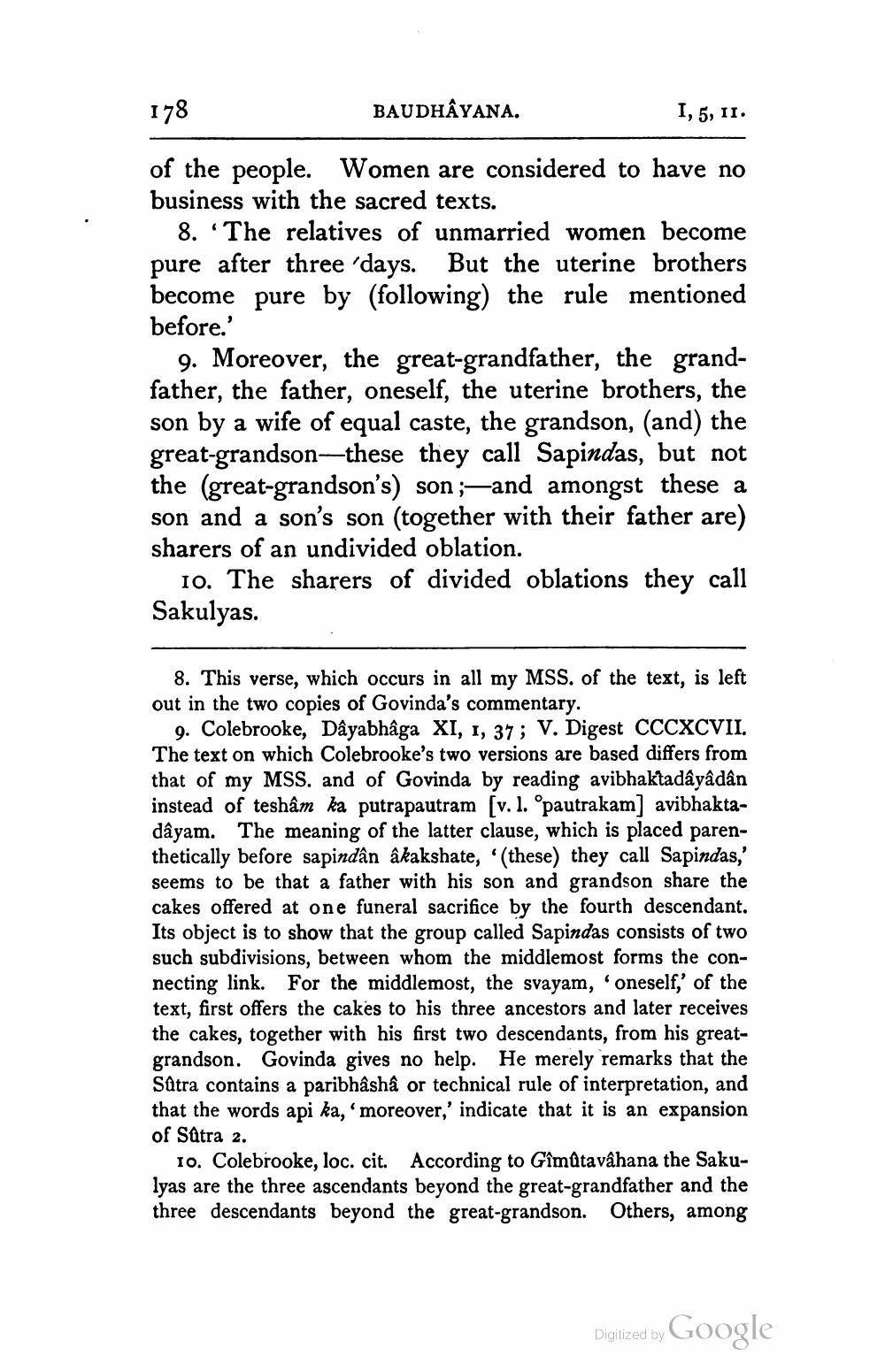________________
178
BAUDHÂYANA.
1, 5, 11.
of the people. Women are considered to have no business with the sacred texts.
8. The relatives of unmarried women become pure after three days. But the uterine brothers become pure by (following) the rule mentioned before.'
9. Moreover, the great-grandfather, the grandfather, the father, oneself, the uterine brothers, the son by a wife of equal caste, the grandson, (and) the great-grandson—these they call Sapindas, but not the (great-grandson's) son ;—and amongst these a son and a son's son (together with their father are) sharers of an undivided oblation.
10. The sharers of divided oblations they call Sakulyas.
8. This verse, which occurs in all my MSS. of the text, is left out in the two copies of Govinda's commentary.
9. Colebrooke, Dâyabhâga XI, 1, 37; V. Digest CCCXCVII. The text on which Colebrooke's two versions are based differs from that of my MSS. and of Govinda by reading avibhaktadâyâdân instead of teshâm ka putrapautram (v. l. 'pautrakam) avibhaktadâyam. The meaning of the latter clause, which is placed parenthetically before sapindân âkakshate, '(these) they call Sapindas,' seems to be that a father with his son and grandson share the cakes offered at one funeral sacrifice by the fourth descendant. Its object is to show that the group called Sapindas consists of two such subdivisions, between whom the middlemost forms the connecting link. For the middlemost, the svayam, oneself,' of the text, first offers the cakes to his three ancestors and later receives the cakes, together with his first two descendants, from his greatgrandson. Govinda gives no help. He merely remarks that the Sätra contains a paribhâshâ or technical rule of interpretation, and that the words api ka, moreover,' indicate that it is an expansion of Sutra 2.
10. Colebrooke, loc. cit. According to Gîmůtavahana the Sakulyas are the three ascendants beyond the great-grandfather and the three descendants beyond the great-grandson. Others, among
Digitized by Google




